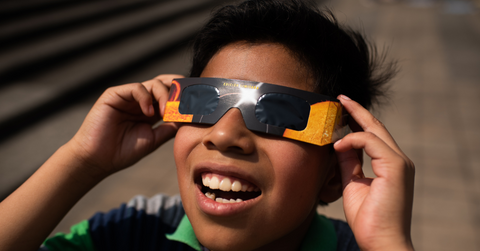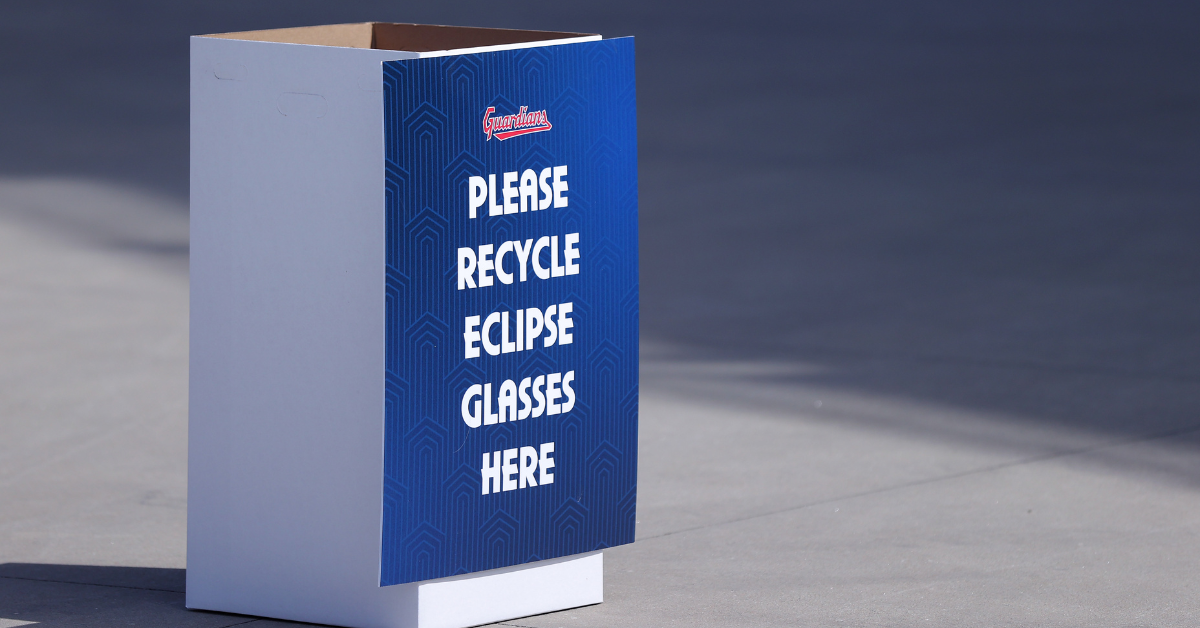You Can Donate Your Solar Eclipse Glasses to Be Reused in Other Countries — Here's How
Your solar eclipse glasses could wind up in a classroom in South America!
Published April 9 2024, 11:03 a.m. ET

Viewing a solar eclipse requires wearing a pair of specialty glasses that have to adhere to rigorous regulations to ensure that they're safe for public use. These glasses are mass produced by manufactures, and then typically listed for sale for retail consumers or purchased in bulk by public institutions — like schools, libraries, and other community groups — so that everyone can safely view the once in a lifetime event.
This process produces a lot of material that, while worth its weight in gold during the eclipse, quickly gets shoved aside or tossed in the trash afterwards. Fortunately, eclipse glasses don't need to end up in landfills or your junk drawer once the celestial event has ended. Instead, they can be donated, giving them a second chance at life in another region of the world. And that's not your only eco-friendly option either. There are a few things you can do with your glasses once event is over.

You can donate eclipse glasses to be reused.
There may not be another solar eclipse happening in North America for quite some time after the April 2024 eclipse, but that doesn't mean other parts of the world won't soon be gearing up for their own big event. That's why organizations like Astronomers Without Borders have been coming up with ways to transport donated eclipse glasses, which have been vetted to guarantee their safety, to different regions. In fact, they specialize in getting glasses to communities where they may not have access to them otherwise, across South America, Africa, and Asia.
You can visit the Astronomers Without Borders' website to learn about its program, including where individuals can drop off their glasses.
Some dropoff points can be found across the U.S. — like at one of Warby Parker's more than 240 storefronts, where you can donate your eclipse glasses through April 30, 2024. There are also other dropoff points more specific to the states that experienced totality during the April 2024 eclipse.
You can also mail your gently used glasses to Eclipse Glasses USA. The company is collecting them to send them to Latin America so that children in remote villages will have access to glasses ahead of the August 2024 eclipse.
How to recycle eclipse glasses after the eclipse:
If your glasses aren't in good enough shape to be donated — cracked, scratched, and broken lenses are not safe to be used for viewing a solar eclipse — you can actually recycle them instead. According to the University of Rochester, all you need to do is remove the lenses and then place the cardboard into any recycling bin that accepts cardboard, paper, or commingled recyclables. You can then either toss the lenses in the trash, or upcycle them for use as a photo filter for your phone.
While damaged lenses aren't safe for the human eye to view an eclipse, they can be used for cell phone photography, which can include snapping shots of the sun. No matter which option you choose to pursue, donating or recycling is preferred over simply throwing them away, since both will keep your glasses from piling up in a landfill with the hundreds of thousands of other glasses that will be tossed out after the eclipse.